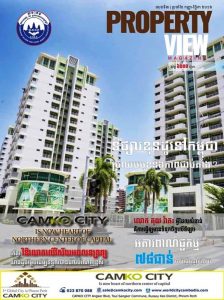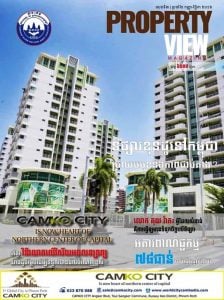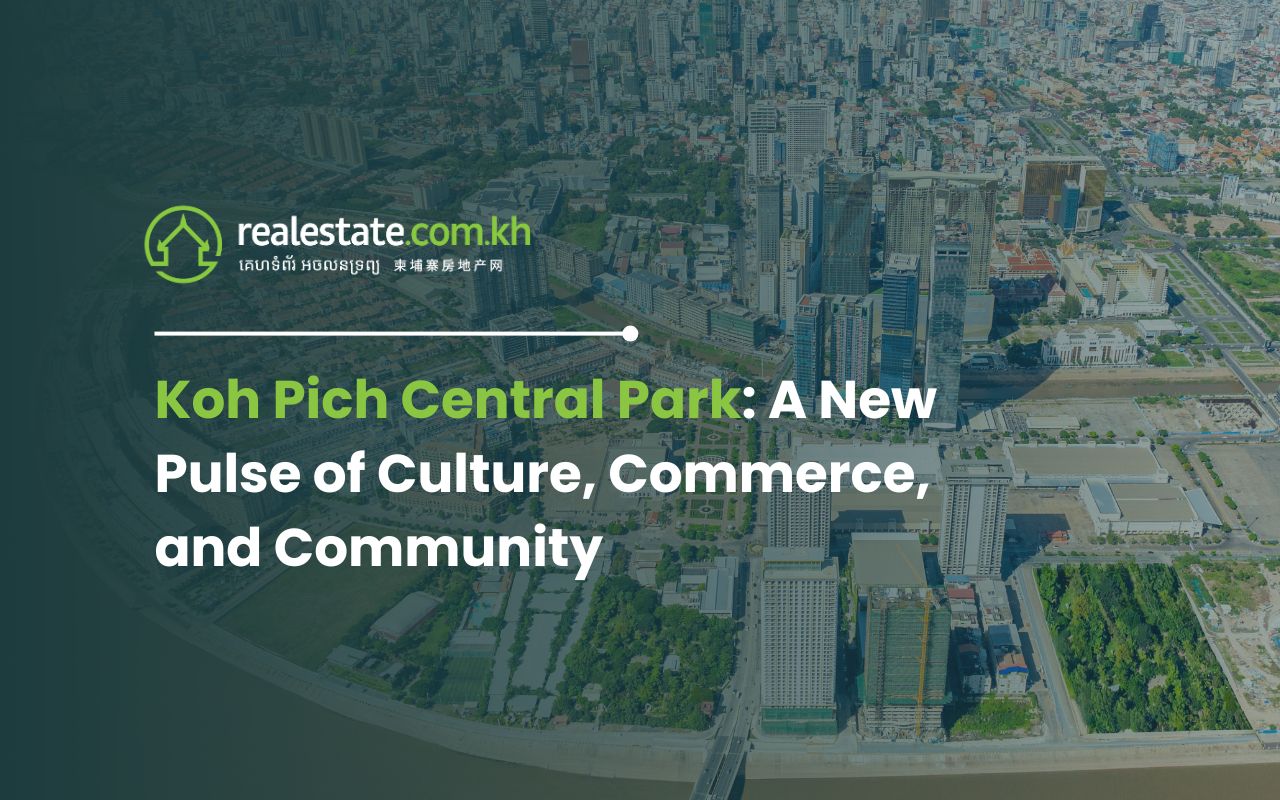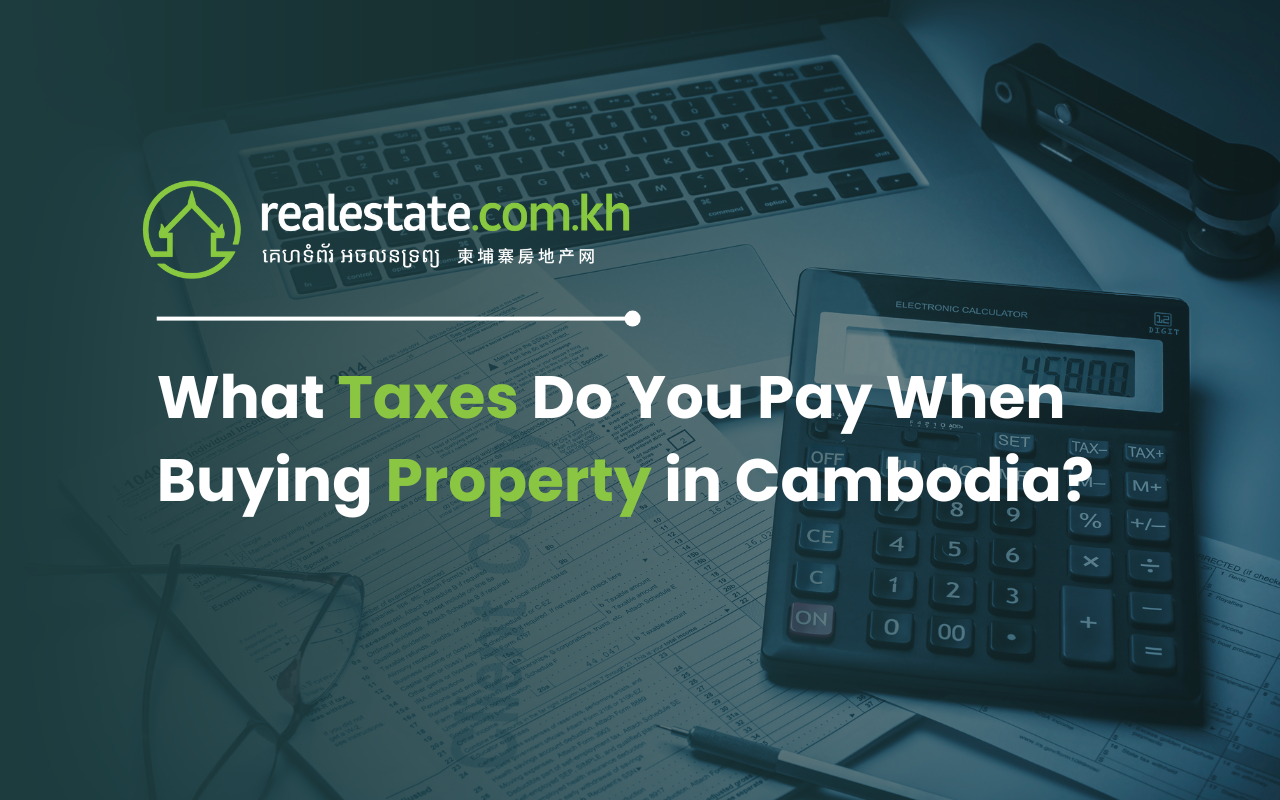
With new developments established by foreign investors who find the Cambodian condo market attractive, information and education regarding the condominium market has steadily grown throughout the years. But generally speaking, different experts have different outlooks and opinions regarding investing in this market.
Chrek Soknim, CEO of Century 21 Mekong, says that if you’re considering investing in the condo market long-term, then you won’t be encountering any serious challenges any time soon because the trends remain to be stable and projections are optimistic due to the fact that there are still lots of condominium units in supply.
But Soknim warns that with the growing number of foreign investors coming into play, sales may regress or slow down a bit due to stiff competition. So, they would have to consider adequate and efficient financing for their projects.
Soknim states that "when there is intense competition, it requires investors to have a precise capital. Otherwise, their projects might face a stalemate in middle plan if investors expect to get funding from buyers to develop the construction project."
Hoping for a great outcome, he says "even if the sales are slower than before,” he does not see any difficulties that may result to the condominium market getting stuck.
Find out real estate news on Realestate.com.kh!
This is also what the director of TOWN CITY Real Estate, Vann Chanthorn, thinks. He explains that there are many projects that are still selling well, especially projects that focus on middle-class customers. He reaffirms that overall, there is no urgent problem and that the condominium market remains strong. This is confirmed by a recent survey done by CBRE Cambodia conservative estimates show that the condo market in the country will increase by 794 percent from now until 2018 and that the supply will increase to a total of 21,414 units. Kim Heang, president of the Cambodian Valuers and Estate Agents Association, said that the number of condominiums that have been built for the current domestic market left a surplus. He said that if investors are thinking about the ASEAN market, there is still much that remains to be seen and that what is important now is to get more ASEAN investors into the sector. If the sector remains stagnant, may not always be the developer’s fault because the government should be doing whatever it takes to attract investors. He continues to say that if water, electricity, and transport costs remain high, then no one might invest. But Heang clarifies this by saying "the laws is already existing, but it is important to all people to respect the law. Demonstrations, demonstrations without rules, so let's address this issue altogether." It is a collaborative effort. Kim Heang adds that the biggest pitfall more than 50 percent of condo developers are finding at the moment is that borrowing money to assist in funding construction presents more of an issue than a solution. He says that some of the developers are now facing deadlock. But there seems to be no problem right now for those who have obtained land and a precise investment capital. He explains, "It does not matter in this industry, but it will have trouble for individuals who borrow money or take money from customers to build." Taking a more positive approach to the surplus issue, Kuy Vat – chairman of VTRUST GROUP which bought the Master Franchise Century21 to Cambodia – said that when the condo market reaches surplus it can be used as an opportunity for investors and clients. They can buy a condo while the values are still low. Customers will find this beneficial because they are presented with more options to invest. Henry Wu, CEO of MATSU Property which is based in Taiwan, remains to be optimistic and believes that there are great opportunities in the Cambodia Condo Market. He said that Phnom Penh is small but being the capital, it is the heart of the country and has a total area of about 20 square kilometers. This means that construction of high-rise condos that have pristine accommodation, comfortable service, and amenities like swimming pools, security, shopping malls and management will be strong contenders in the near future and will be a factor in the continuous increase. Wu continues to say that Cambodia is a country which has flexible control over currency and has more freedom among countries in the region. Cambodia also does not collect tax on profits in the sector, and investors can go in and out freely, especially now that the property cost in Phnom Penh is relatively low compared to cities of the of other countries in this area. He added that "people in the city are about 2 million and condo costs at a very low price compared with other countries in the region that all these factors have attracted great interest from foreign investors for real estate here." Wu also establishes that foreigners have known markets in Bangkok, Kuala Lumpur, and Hong Kong, but were not familiar with Phnom Penh. But he expects this notion to change by 2023, when Cambodia hosts the Asian. He predicts that Phnom Penh will flourish during this time. He concludes by saying that "if you invest in condominiums, for people with middle-income, there are no signs of anything alarming, but I worry about the condo kind of luxury, which are expensive." While experts may disagree on certain aspects of the condo market, it is important to note that there are similarities in their individual analysis. These may provide better insight for those who are wishing to invest in Cambodia within the next few years. This story was featured in the September 2016 print edition of PROPERTY VIEW magazine, produced by the CVEA. Realestate.com.kh is very proud to support the CVEA’s Property View publication. For more information about joining the Cambodian Valuers and Estate Agents Association (CVEA) please click here. And, if you are interested in advertising placement or advertorial in the next edition of Property View Magazine, please contact Mr. Virith via email: virith007@yahoo.com Or call: 078 959 567 or 098 66 26 68




Comments